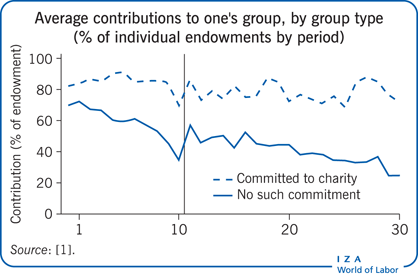Elevator pitch
Survey and register data indicate that many employees prefer a socially responsible employer and will accept a lower wage to achieve this. Laboratory experiments support the hypothesis that socially responsible groups are more productive than others, partly because they attract cooperative types, partly because initial cooperation is reinforced by group dynamics. Overall, the findings indicate corporate social responsibility may have cost advantages for firms.
Key findings
Pros
Firms with a reputation as socially responsible pay lower wages than other firms.
Such low wages are unattractive to unmotivated workers who care only about their own earnings.
A low wage may be tolerated by a motivated individual who prefers a socially responsible employer.
Laboratory experiments indicate that a socially responsible firm attracts more cooperative individuals.
Experiments also indicate that individuals cooperate more in a group the more that others in the group also cooperate.
Cons
Men’s wages are lower in socially responsible firms, but for women, results are less clear.
The cost advantages of social responsibility to firms do not necessarily make them more profitable.
